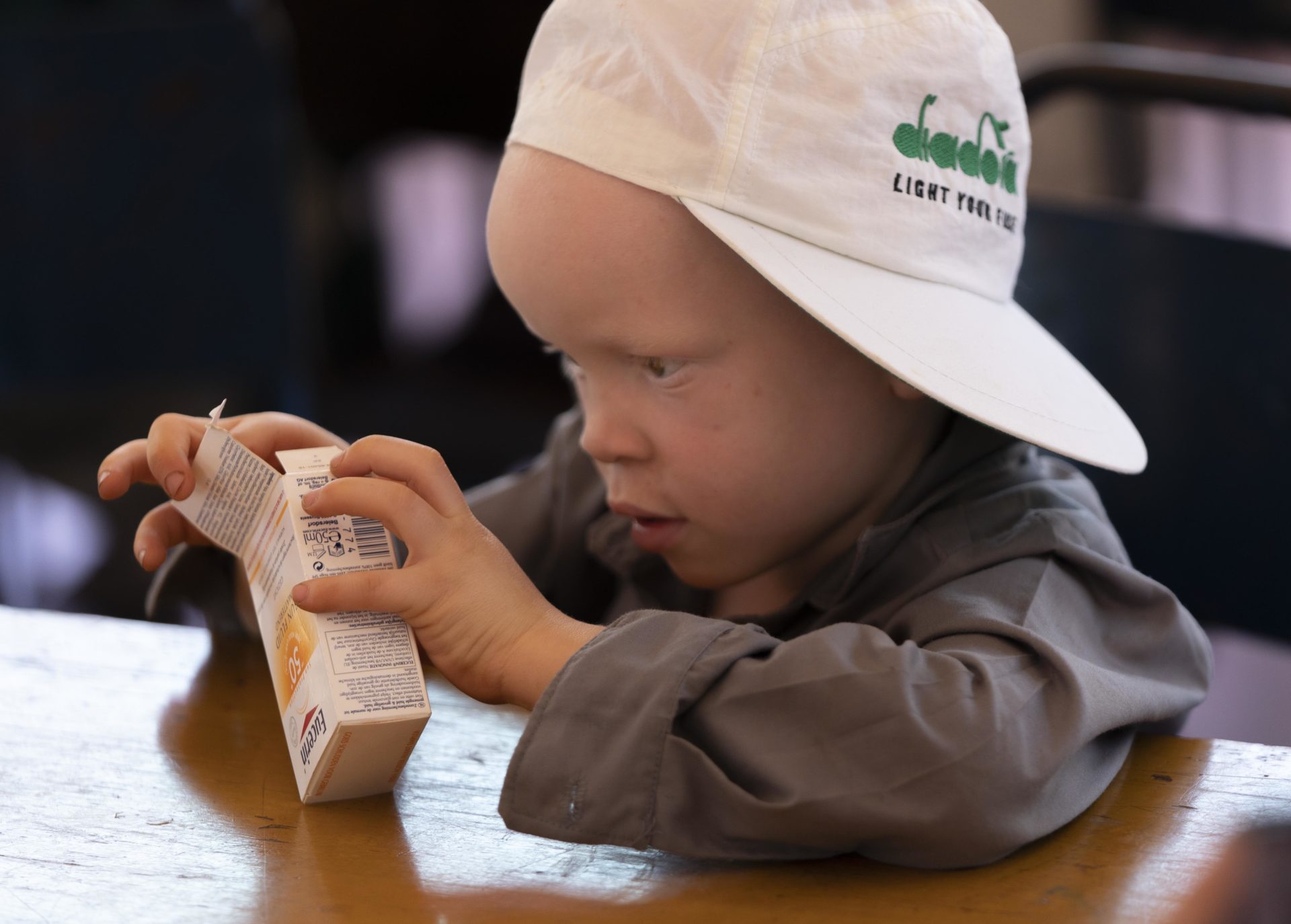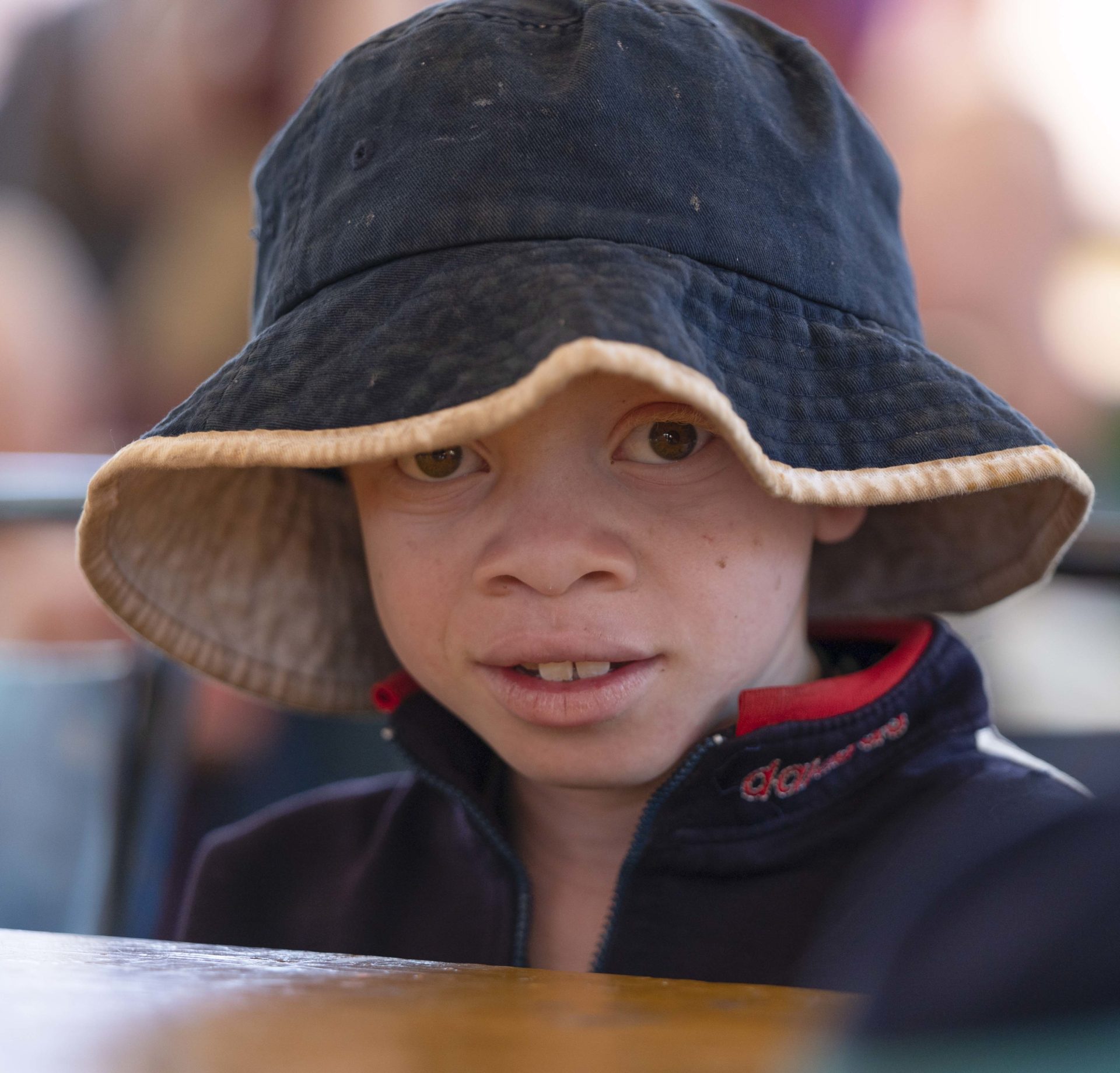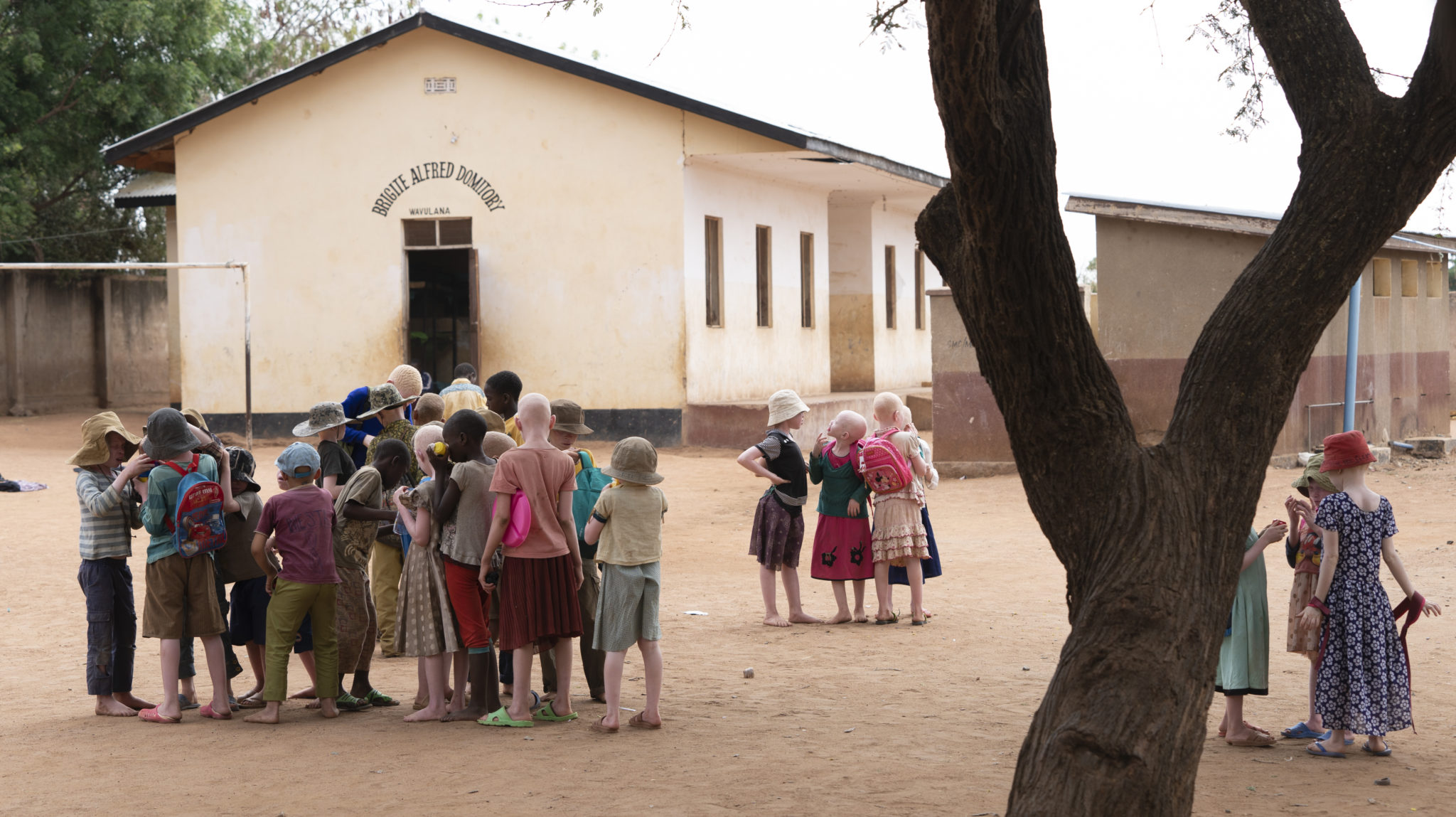What is albinism
Albinism is a genetically inherited condition of a lack of pigmentation that effects mainly color of skin, hair and eyes.

Low vision and skin cancer
Albinism is caused by a melanin deficiency. People with albinism have a high risk of developing skin cancer, especially in the climate of most African countries. This melanin deficiency also causes visual impairment. Despite these health implications, albinism is not a death sentence. People with albinism are just as intelligent as anyone else.
Vision can be improved with glasses and low vision devices. The threat of skin cancer can be managed by minimising exposure to sunlight (particularly around midday), applying sunscreen, and wearing long-sleeved clothing and wide-brimmed hats outdoors.
Tanzania scores highest in the birth rate of people with albinism. Approximately one out of 1.400 people are born with albinism, compared to one out of 20.000 in Europe.
About people with albinism in Africa
In many African countries, the persecution of people with albinism is caused by the two-sided contradictory belief that, possessing a body part of a person with albinism will bring you good luck and fortune, while an albino baby will bring a curse and bad luck to the family where he/she is born into.
Due to this misconception, people with albinism are not only stigmatized and discriminated, but also hunted, killed and dismembered and even their graves are dug up in the search of bones and any leftover of body parts. In the last 10 years, countless attacks have taken place, most of which remain unreported, as they occur in remote areas in the night and bodies are dumped in the woods.
Local witchdoctors make medicines with body parts which supposedly have magical powers. In January 2015 the Tanzanian government has arrested more than 200 witchdoctors.


SHELTERS
Since a murder of a baby in Geita early 2015, most of the children with albinism in the Lake Victoria Region have stopped attending schools due to their fears of being kidnapped and murdered. Currently Tanzania counts 28 government-run shelters for children with albinism. These children live separated from their families (sometimes family members themselves are involved with crimes). Often a lack of good hygiene at the shelters makes the living conditions very poor.
